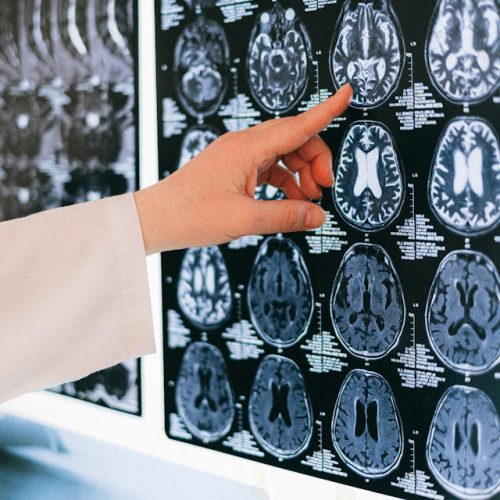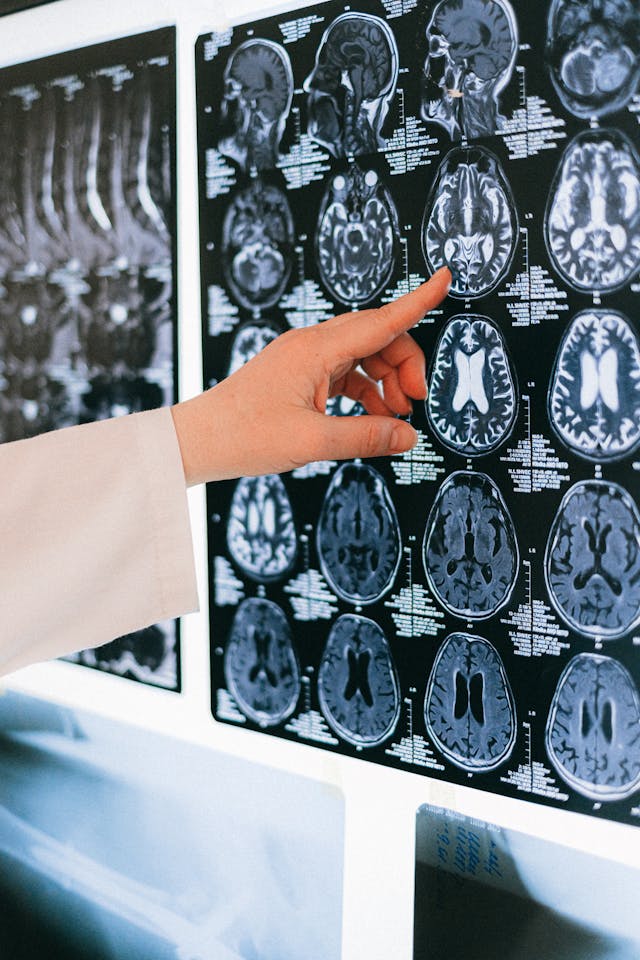Vitamin B2, also known as riboflavin, is a crucial nutrient that plays a vital role in energy production, cellular function, and metabolism of fats, drugs, and steroids.
Riboflavin is also essential for maintaining the health of the skin, eyes, and nervous system. A deficiency in vitamin B2 can lead to various health issues, including neurological and psychological disorders such as depression.
This article explores how riboflavin deficiency can lead to depression, detailing the symptoms and signs, causes and risk factors, diagnosis, treatment options, prevention tips, and advice on discussing potential riboflavin deficiency with your doctor.
Symptoms and Signs
Riboflavin deficiency can lead to a variety of symptoms, some of which directly affect mental health. These symptoms include:
Physical Symptoms
- Fatigue: Persistent tiredness and lack of energy, which can affect daily functioning.
- Muscle Weakness: Difficulty in performing physical tasks due to weakened muscles.
- Sore Throat: Inflammation and soreness in the throat.
- Swelling of Mucous Membranes: Particularly in the mouth and throat.
- Cracked Lips and Corners of the Mouth: Known as angular cheilitis, this is a common sign of riboflavin deficiency.
- Red, Itchy Eyes: Riboflavin deficiency can lead to eye strain and discomfort.
- Skin Disorders: Such as dermatitis and seborrheic dermatitis, which cause red, itchy skin rashes.
Psychological Symptoms
- Depression: Persistent feelings of sadness, hopelessness, and lack of interest in activities once enjoyed. This symptom is influenced by riboflavin’s role in brain function and neurotransmitter regulation.
- Irritability and Anxiety: Increased feelings of irritability and anxiety, which can exacerbate depressive symptoms.
- Cognitive Impairment: Difficulties with memory, concentration, and decision-making.
Causes and Risk Factors
Riboflavin deficiency can result from several factors, including:
- Poor Dietary Intake: Consuming a diet low in riboflavin-rich foods, such as eggs, lean meats, milk, and green vegetables.
- Malabsorption Disorders: Conditions like celiac disease and Crohn’s disease can impair nutrient absorption.
- Chronic Alcoholism: Alcohol consumption interferes with riboflavin absorption and storage.
- Certain Medications: Some medications can affect riboflavin metabolism, such as anticonvulsants and antipsychotics.
- Increased Nutrient Needs: Pregnant and breastfeeding women, as well as individuals with high physical activity levels, may have higher riboflavin requirements.
Diagnosis
Diagnosing riboflavin deficiency involves a combination of medical history review, physical examination, and laboratory tests. Key diagnostic tests include:
- Blood Tests: To measure riboflavin levels in the blood.
- Erythrocyte Glutathione Reductase Activity Coefficient (EGRAC) Test: A specific test that measures the activity of an enzyme that requires riboflavin to function properly.
- Urinary Riboflavin Excretion Test: To assess the amount of riboflavin excreted in the urine, indicating the body’s riboflavin status.
Treatment Options
The primary treatment for riboflavin deficiency is riboflavin supplementation. Treatment options include:
- Oral Riboflavin Supplements: Available over-the-counter or by prescription, these supplements effectively raise riboflavin levels in the body.
- Dietary Changes: Incorporating riboflavin-rich foods such as eggs, milk, green vegetables, lean meats, and fortified cereals into the diet.
These treatments are highly effective in reversing the symptoms of riboflavin deficiency, including depression. Additionally, addressing underlying causes such as alcoholism or malabsorption disorders is crucial for long-term management.
Prevention
Preventing riboflavin deficiency involves maintaining a balanced diet and addressing risk factors. Tips for prevention include:
- Balanced Diet: Ensure your diet includes riboflavin-rich foods like eggs, milk, lean meats, and green vegetables.
- Limit Alcohol Consumption: Reducing alcohol intake can improve riboflavin absorption and storage.
- Manage Medical Conditions: Properly managing conditions that affect nutrient absorption can help prevent deficiencies.
- Regular Check-Ups: Regular medical check-ups can help identify and address deficiencies early on.
Speaking to Your Doctor
If you suspect that riboflavin deficiency may be contributing to your depression, it is essential to speak with your healthcare provider. Here are some steps you can take:
- Describe All Symptoms: Be sure to mention both physical and psychological symptoms.
- Request Specific Tests: Ask about blood tests and other relevant diagnostics to assess riboflavin levels.
- Discuss Treatment Options: Inquire about riboflavin supplements and dietary changes.
Disclaimer
This article is for educational purposes only, based on my research. I am not a doctor nor a health advisor. None of the information in this article should be considered without speaking with your primary care doctor first. Always consult with a healthcare professional for medical advice and treatment.








